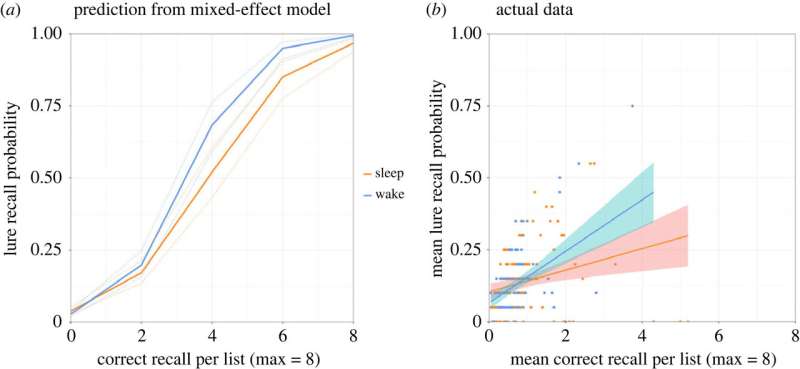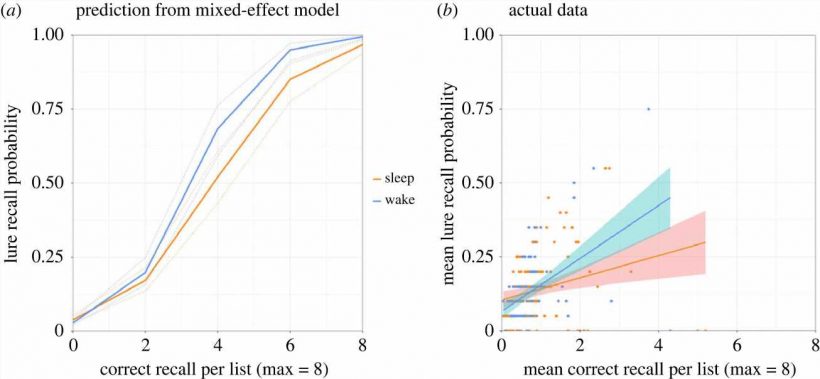
A team of psychologists at the University of York, in the U.K., has found via experimentation that sleeping after studying can consolidate memories. But, as they note in their paper published in the journal Royal Society Open Science, sleep can also sometimes lead to the creation of false memories.
Recent research efforts have shown that human memory is not nearly as accurate as it may feel to someone who is recalling a memory of a thing or event—findings that have called into question eyewitness accounts at criminal trials. Such results have led to more study of memory retention and recall as a way to learn more about the ways that memory works.
For this new research, 488 volunteers studied a list of related words and then to attempt to recall those words 12 hours later. To learn about the impact of sleep on retention, some of the volunteers were allowed to sleep between the time they viewed the original list and the time of the memory retention testing.
The researchers found that those people who were allowed to sleep during the interim scored better on memory retention. But they also found that they were more likely to believe falsely that some related words were on the list. As an example, when given a list such as “nurse, hospital and surgery,” people who had been allowed to sleep were more likely to falsely believe the word “doctor” had also appeared on the list.
The researchers suggest this finding shows that the purpose of memory is not necessarily to give people an accurate assessment of things that have occurred, but to give them a means for retrieving the gist of things. As humans evolved, it was important that connections and associations be made as part of the learning process in order to better prepare for future threats.
The research team also found that the time of day the volunteers were questioned about the list had an impact on recall accuracy—both groups made more errors and falsely recalled more words when questioned during the evening.
More information:
Matthew H. C. Mak et al, A registered report testing the effect of sleep on Deese-Roediger-McDermott false memory: greater lure and veridical recall but fewer intrusions after sleep, Royal Society Open Science (2023). DOI: 10.1098/rsos.220595
Journal information:
Royal Society Open Science
Source: Read Full Article
